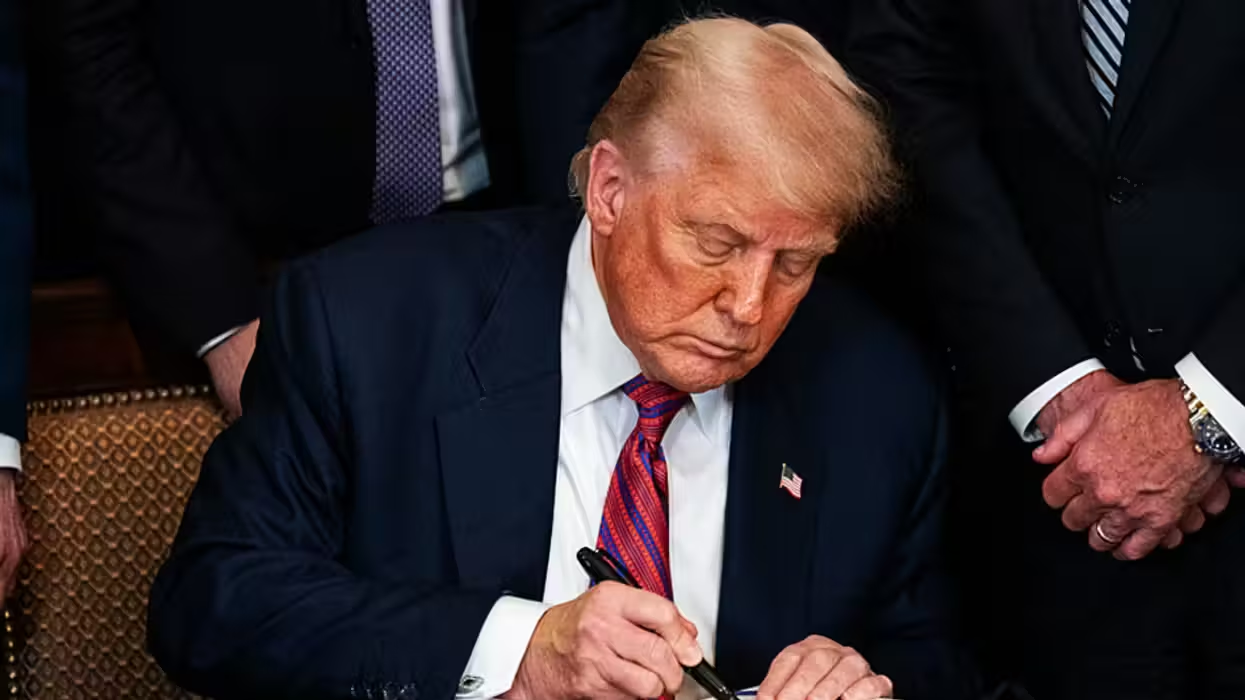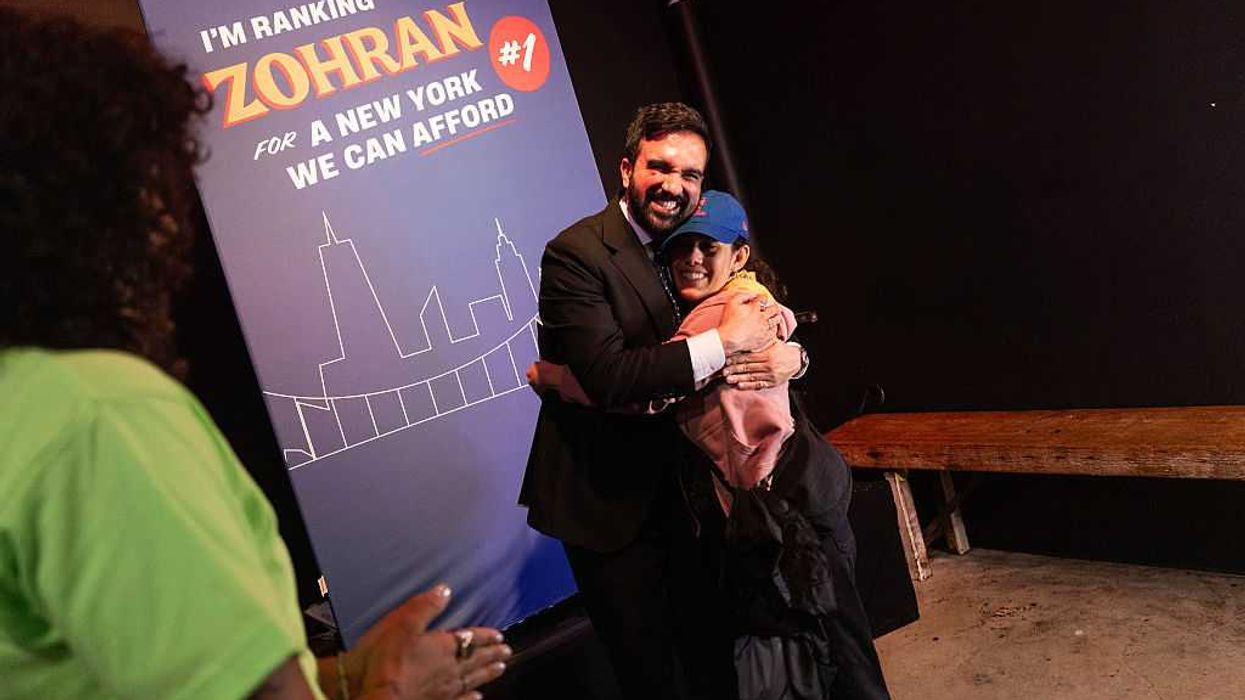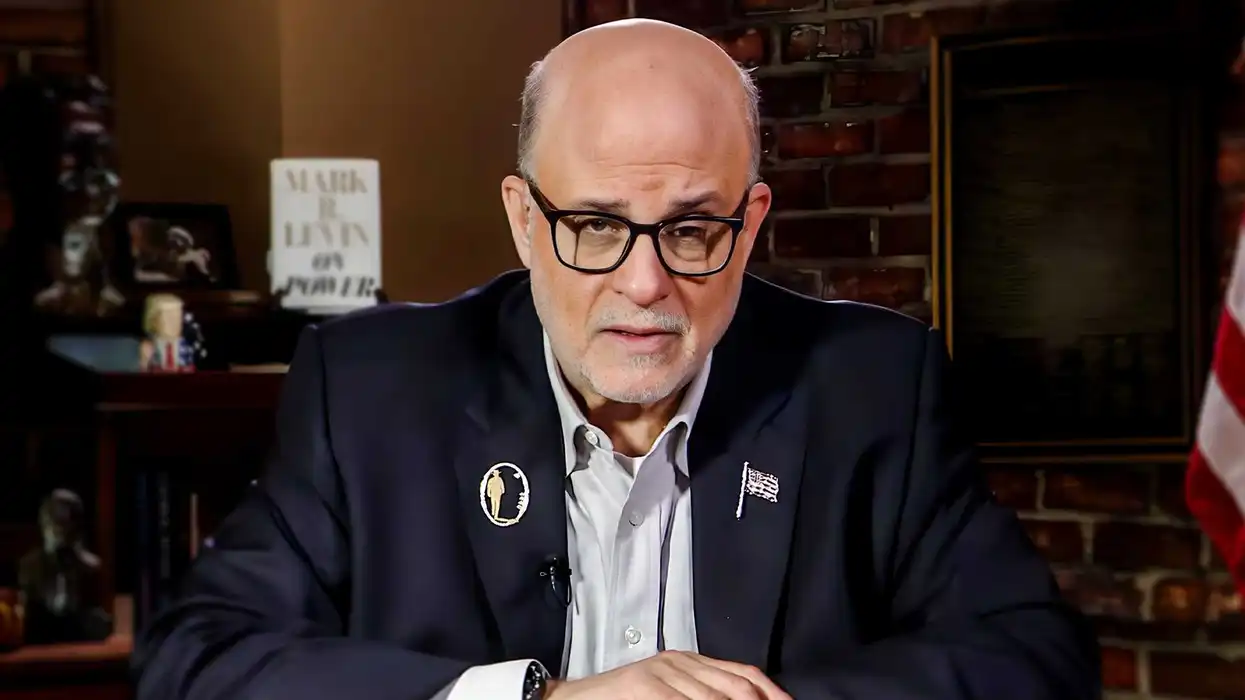For more than 60 years, no United States ground personnel have been killed due to an enemy air attack. The last confirmed instance was in 1953, in Korea.
Based on comments from Sen. John McCain (R-Ariz.) at Tuesday's Senate Armed Services committee hearing this might be a primary reason why the White House won't budge an inch on sending U.S. troops to the region to begin a campaign against the Islamic State.
 U.S. Sen. John McCain grilled Gen. Martin Dempsey, Chairman of the Joint Chiefs, and Secretary of Defense Chuck Hagel Tuesday on whether or not the administration is prepared to "take out" the Syrian government's ability to employ air assets. (AP Photo/The Arizona Republic, Emmanuel Lozano)
U.S. Sen. John McCain grilled Gen. Martin Dempsey, Chairman of the Joint Chiefs, and Secretary of Defense Chuck Hagel Tuesday on whether or not the administration is prepared to "take out" the Syrian government's ability to employ air assets. (AP Photo/The Arizona Republic, Emmanuel Lozano)
Roughly one hour into the hearing, McCain prodded the Pentagon's top brass -- Gen. Martin Dempsey, Chairman of the Joint Chiefs, and Secretary of Defense Chuck Hagel -- on whether or not the administration is prepared to "take out" the Syrian government's ability to employ air assets.
"Obviously this group of 5,000 ... will be back in Syria fighting against ISIL, they'll also be fighting against Bashar Assad, which they've been doing for a number of years before ISIL was ever a factor," McCain pointed out. The Arizona senator said Assad has attacked them from the air with great success in the past.
"If the Free Syrian army units are attack from the air by Bashar Assad, will we prevent those attacks from taking place and take out Bashar Assad's air assets both helicopter and fixed wing that will be attacking the Free Syrian Army units?"
Hagel responded "we aren't there yet," and that the administration's focus is strictly on ISIL. But McCain clearly sees the two groups as intertwined in the larger picture of regional security.
"I'll take it from your answer that we are now recruiting these young men to go and fight in Syria against ISIL, but if they are attacked by Bashar Assad, we aren't going to help them," McCain said.
After some back and forth, McCain tossed perhaps the most tense question of the hearing to Dempsey; "You don't think that the Free Syrian Army is going to fight Bashar Assad, who has been decimating them? You think that these people you are training will only go back to fight against ISIL? Do you really believe that, general?"
Dempsey then gave probably the most clear and succinct definition yet of the Obama strategy in Iraq and Syria.
"As we train them and develop a military chain of command linked to a political structure that we can establish objectives that defer that challenge into the future. We do not have to deal with it now," Dempsey said.
McCain flatly squashed that assumption, calling it a "fundamental fallacy" and total misunderstanding of the Free Syrian Army.
While answering another line of questing, Dempsey opened the door to having American troops on the ground in Syria. Though he stressed, "We aren't there yet," the four-star general said if the president's expanded campaign of airstrikes and training of moderate Syrian rebels fails, he would recommend U.S. "advisers should accompany Iraqi troops on attacks against specific ISIL targets."
"My view at this point is that this coalition is the appropriate way forward. I believe that will prove true. But if it fails to be true, and if there are threats to the United States, then I of course would go back to the president and make a recommendation that may include the use of U.S. military ground forces," Dempsey said.
But it took the White House less than two hours to shoot down that possibility. The Wire reported White House press secretary Josh Earnest quickly moved to slam shut any door Dempsey left open with his comments. While briefing reporters aboard Air Force One as Obama traveled to Atlanta for a briefing on the Ebola outbreak at the Centers for Disease Control and Prevention, Earnest said:
"As was clear form General Dempsey's remarks he was referring to a hypothetical scenario in which there might be a future situation in which he might make a tactical recommendation to the president as it relates to ground the use of ground troops."
According toThe Wire, Earnest added that while it was the military's job to plan for a wide range of contingencies, it was the president's job to set policy.
"The president has been clear what that policy is. What he has been very specific and precise about is he will not deploy ground troops in a combat role into Iraq or Syria."
 FILE - This Aug. 1, 2013 file photo posted on the official Facebook page of the Syrian Presidency shows Syrian President Bashar Assad talking with soldiers during Syrian Arab Army Day in Darya, Syria. Sen. McCain pressed Gen. Martin Dempsey and Secretary Chuck Hagel on whether the administration would be willing to "take out" Assad's air assets, which might be one reason why President Obama isn't willing to put any boots on the ground in the region (AP Photo/Syrian Presidency via Facebook, File).
FILE - This Aug. 1, 2013 file photo posted on the official Facebook page of the Syrian Presidency shows Syrian President Bashar Assad talking with soldiers during Syrian Arab Army Day in Darya, Syria. Sen. McCain pressed Gen. Martin Dempsey and Secretary Chuck Hagel on whether the administration would be willing to "take out" Assad's air assets, which might be one reason why President Obama isn't willing to put any boots on the ground in the region (AP Photo/Syrian Presidency via Facebook, File).
If McCain's concerns are legitimate, Assad's airpower might be a primary reason why President Obama will not contemplate allowing U.S. troops to the region.
A spokeswoman from McCain's office told TheBlaze that the conflict in Syria between the Free Syrian Army and Assad must be a key consideration in the overall strategy to degrade or defeat Islamic State.
"It is clear that the Assad regime, which has killed more than 190,000 of its own people, has been complicit – directly and indirectly – in the growth of ISIS," the spokesperson said. "Senator McCain believes that ending the conflict in Syria will require taking out Assad’s air power, creating safe zones to protect civilians, and helping the Free Syrian Army in its two-front war against both ISIS and the Assad regime."
It seems McCain and those who share his view see the coming conflict as a domino effect: no willingness to attack Assad's airpower means no air superiority, which means no boots on the ground, which means no guarantee that the 31,000-strong Islamic State fighting force can truly be cornered or destroyed.
The entire hearing was more than three hours; if you want one five-minute segment from the hearing, this is the one to catch.
--
Follow Elizabeth Kreft (@elizabethakreft) on Twitter

 U.S. Sen. John McCain grilled Gen. Martin Dempsey, Chairman of the Joint Chiefs, and Secretary of Defense Chuck Hagel Tuesday on whether or not the administration is prepared to "take out" the Syrian government's ability to employ air assets. (AP Photo/The Arizona Republic, Emmanuel Lozano)
U.S. Sen. John McCain grilled Gen. Martin Dempsey, Chairman of the Joint Chiefs, and Secretary of Defense Chuck Hagel Tuesday on whether or not the administration is prepared to "take out" the Syrian government's ability to employ air assets. (AP Photo/The Arizona Republic, Emmanuel Lozano)





